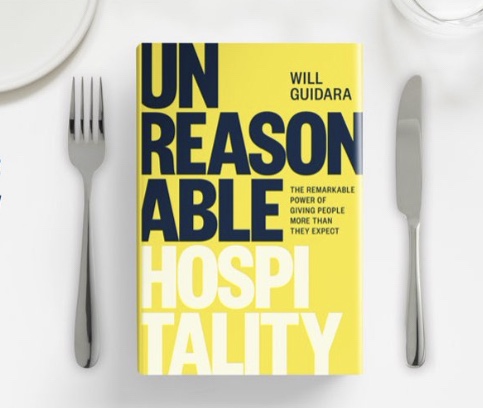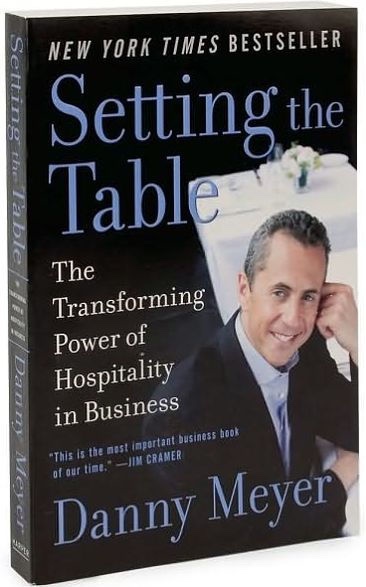There was a time not too long ago when you could grease your way into a trendy restaurant by slipping a crisp $50 bill into the maître’d’s palm. I suspect there are still a few impressionable gatekeepers willing to trade a cozy corner table for a generous bribe, but the good ‘ole days of buying your way into a restaurant are pretty much over. Scoring a reservation at everyone’s favorite place is becoming harder without connections, and many restaurant owners work hard to keep the velvet rope as short as possible. In today’s luxury-driven market, access to restaurants must be earned, and guests are expected to prove their worth through consistent spending habits.
Contrary to public perception, restaurants aren’t democracies. Conventional wisdom suggests that anyone can make a reservation, so we should all have equal opportunity to dine in every restaurant. However, the truth is that restaurants, especially high-end ones, function more as meritocracies. That means that people who consistently spend more money will often have an easier time getting a reservation. I can also tell you from experience that management in fine dining restaurants cultivates these relationships, establishing private lines of communication to facilitate the exchange of preferred access for generous patronage. Most restaurateurs won’t admit that they arrange such favors, but rigging the reservation book for the rich has been going on forever.
Restricting access has historically been an effective strategy for restaurants to build a reputation on exclusivity. In Dining Out: A Global History of Restaurants, Katie Lawson and Elliott Stone note that, even in the late nineteenth century, restaurants like the one in the Waldorf Hotel in New York City were known for limiting access to curate a certain clientele base. “Fine dining establishments, especially those at the very top, thrived not on friendliness, but on gatekeeping,” they wrote. “By being selectively welcoming, these places created prestige and demand.” The dynamic they describe sounds remarkably contemporary.

I’m sure you’ve noticed that restaurant prices are skyrocketing lately. In a recent post on his LO Times Substack newsletter, former Eater food critic Ryan Sutton notes the corrosive effects of surging prices, lamenting how recent hikes are pricing people out from dining at their favorite restaurants. “Some of these increases are simply the unfortunate byproducts of living in one of the world’s most expensive cities,” he writes, of New York City, “and yet sometimes it feels as if more and more operators are saying to themselves: let’s go “whale hunting.” It’s true that many restaurants have become more whale-friendly than ever, but the “pivot to the rich” he’s describing is hardly a new development.
Reservations have become status symbols, especially in affluent circles, and the ability to get into a restaurant has become a form of social currency. For years now, high-end restaurants have been experimenting with alternative reservation systems to exert greater control over who has access. It started ten years ago with ticketing apps like Tock that treat dinner reservations like rock concerts, where securing a table requires guests to prepay their meals in advance. Today, third-party concierge services like Dorsia provide exclusive reservations to customers that are willing to meet spending thresholds that help insure restaurants against costly no-shows and provide a boost of adrenaline to their bottom line.
Companies like Major Food Group in New York City have been actively developing private membership models that cater to their most affluent clientele. The buy-in at Major Food’s ZZ’s Club and Carbone Privato in Manhattan’s Hudson Yards, for example, starts at $30,000 with recurring annual dues of $10,000 (250 members were offered “Founder’s Club” status for a $50,000 initiation fee). Similar members-only restaurants like the 60,000 square-foot Core Club in NYC (and soon to open in San Francisco and Milan) are popping up all over the country with membership fees that range up to $100,000 annually per family. Carbone Privato provides curated experiences that include a private “chef concierge” service that will cook any dish of the menu for members (including personal family recipes with ample notice).
The privatization of restaurants seems exclusionary and classist, but the pay-to-play model was already firmly in place long before this new wave of membership models. Luxury restaurants create a club-like atmosphere by inflating menu prices to a level that only a certain caliber of clientele can afford. I had an experience recently at a swanky midtown Manhattan restaurant that reminded me of how prices can be exclusionary. The menu was littered with gratuitous upsells labeled “enhancements”—like adding king crab to any salad for an extra $33 or upgrading from the run-of-the-mill $27 burger to a Wagyu version for $37. The add-ons seemed designed as flexes more than anything that improved individual dishes in a meaningful way. It also made the default settings, expensive in their own right, feel pedestrian. The restaurant’s signature prime rib cost a full $100 and a lobster pasta with a few paltry chunks of meat sold for $75. It would be virtually impossible to have a proper meal for less than $200 per person, even without drinks. There was no big-name chef in the kitchen or farm-to-table ethos to justify the astronomical prices. Everyone present seemed to understand that we weren’t only paying for the food but for the privilege.

Aside from booking high-end fine dining destinations like Noma or Alinea, most restaurant goers still reject the idea that they should be expected to pay in advance for the privilege of dining in a restaurant. Average guests still view a restaurant reservation more like a gentleman’s agreement than a contract. The same people will happily pay hundreds if not thousands of dollars above face-value to see a Taylor Swift concert or for tickets to the latest Broadway smash. For some reason, we reject the idea that restaurants should ever cost more than what we order from their menu.
Anyone who thinks that online reservation platforms like Resy prove that everyone has an equal opportunity to dine anywhere should be reminded that Resy was recently bought by American Express (presumably to ensure more exclusive access for their wealthiest clients). Heavily in-demand restaurants also often withhold a percentage of their tables (especially the more valuable prime time slots) from those online reservation services, to make sure they have availability for VIP guests, affluent regulars, friends of the owners, and celebrities. Once someone has demonstrated themselves to be a reliable guest who spends a lot of money, management tends to find ways to get those people in, even when reservations are tight.
These developments collectively portend a sad reality where average people are losing access to their favorite restaurants. “This is an era when becoming a regular, or even going to a nice restaurant once a year, can feel like an unattainable luxury,” writes Sutton, in his newsletter. He’s right that the days of our favorite restaurants always being there for us when we need them to be may be gone forever. The truth may be exactly the opposite: that we will need to be there for restaurants whenever they want us to be. Don’t forget to bring your wallet.




